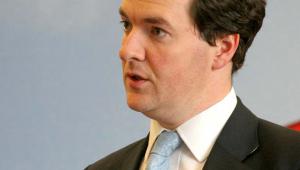Tomorrow is the deadline for combined authorities and councils to submit devolution proposals to ministers for consideration ahead of the 25 November funding announcement. The think-tank said there was massive potential for businesses in the North West, North East and Yorkshire and Humber to drive the nation’s prosperity.
Its analysis found the economy of these three Northern regions was already worth £289bn, which is bigger than all the devolved nations’ economies combined. However, if they were able to halve the gap between their economic output per head and the UK average, then their combined output would be £34bn (11.9%) bigger.
IPPR North director Ed Cox said the economic underperformance of the North of England was not inevitable.
“We have seen past attempts at ‘regional policy’ fall by the wayside, but the Northern Powerhouse has momentum and has galvanised leaders in the North,” he said.
“But investment, leadership and urgency are the key ingredients for turning Northern Powerhouse rhetoric into national economic prosperity. The momentum is building, the benefits are great – the opportunity is there to be seized for Northern prosperity to create national prosperity.”
According to Rhetoric to reality: a business agenda for the Northern Powerhouse, the Spending Review must lead to a step change in commitment to the North of England, including additional investment in infrastructure. Spending on transport capital in the North in 2013/14 was £166 per head, less than half that of London (£332).
Chancellor George Osborne should also ensure the momentum behind devolution is sustained across government, the think-tank said.
Local leaders from across West Yorkshire have set out their proposed offer to ministers ahead of tomorrow’s deadline.
Their preferred option is a pact based around the functional economic area of the Leeds city region, building on more than a decade of economic collaboration and partnership between local councils and businesses.
This should be backed with fiscal devolution, including 100% retention of the local growth in business rates and power to levy a Supplementary Business Rate to invest in major infrastructure schemes.
The region also called for freedom to levy a 10-year infrastructure precept, exempt from the council tax-capping regime, to deliver major new investments such as a world-class metro style public transport network across the city region.
Publishing the proposals yesterday, Wakefield Council leader Peter Box said: “We had a constructive meeting with leaders of neighbouring councils and Lord O’Neill ahead of us submitting to government an ambitious devolution proposal that will mean better infrastructure, jobs and housing.”




















